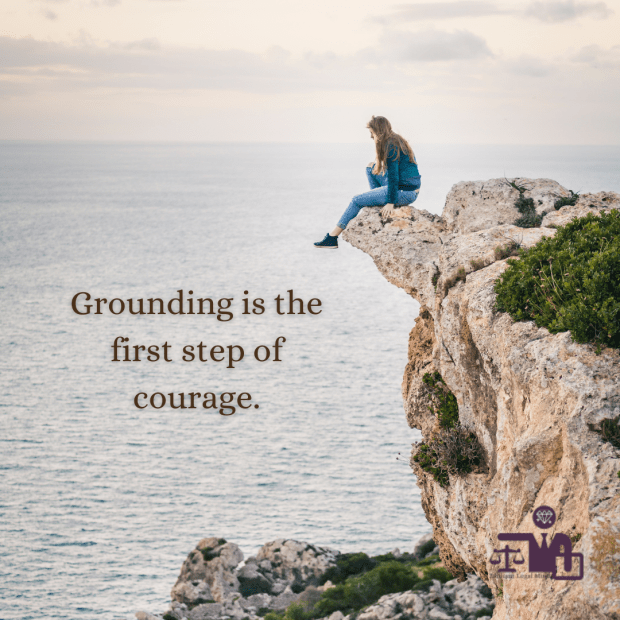
When I was preparing for my first ever appellate oral argument, I remember a swirl of questions flurrying through my mind. What if the panel is hostile to my position? What if they don’t like my presentation? What if they ask the dreaded question that exposes the fatal weakness in my case? What if they ask a question that I just can’t answer? When you prepare for oral argument, these questions are normal and can even be a healthy part of preparation. But, ideally, they settle down before you walk up to the podium and say “may it please the court.”
I love oral argument and always have. Answering questions on the fly is fun for me. I did 3 moot courts in law school because I loved it so much. Today, when I have an argument or present to an audience, I fear a cold panel much more than an active one. So, it came with some surprise when I did my first oral argument years ago and I was more nervous than I expected. It was a straightforward argument, and my brief was strong. But still, standing in the lush but austere chambers of the Sixth Circuit made me feel shaky and out of control. So, what did I do?

I walked to the podium and placed my hands down. As I was awaiting a cue from the bench, I felt my feet on the ground and let the weight of my body stabilize me. Having made a conscious choice not to mentally flee the experience, I began my argument and gathered momentum along the way. A few minutes in, I got questions from the judges that made it clear to me that I had already won so I made the best choice I could in that situation: to quit while I was ahead. I made a conclusion, ceded my time, and sat down to watch opposing counsel try to fight off blows from the panel on rebuttal.
In retrospect, I now see that I had little reason to feel nervous. We got a favorable ruling days later that indicated that the judges had no trouble accepting my arguments. But I was still super proud of my work and not just because it was my first victorious appellate oral argument. Instead, I was proud that I stayed present for the whole experience and didn’t let my nerves get in the way of seeing facts in the moment so I could react skillfully to them. If I had not been paying attention, I could easily have plowed onward in my argument, unnecessarily risking raising dangerous issues or annoying the judges. Because I had managed my nerves, this didn’t happen and I didn’t lose any of the ground I had gained with my brief.

That’s what grounding can do for us lawyers in times of stress. Grounding is a practice of feeling the physical sensations of the body and most commonly emphasizes the sensations of being rooted to the earth. Most grounding practices suggest feeling the weight of one’s body or the contact that one’s body (such as the rear end, back, or feet or even hands on a podium) with the earth or other stable object. When emotions are high, this strategy works on a practical level because it helps us find stability when things seem beyond our control. It also helps us minimize the impact of a mind churning with thoughts that usually only serves to increase our anxiety. On a psychological level, though, grounding is the first step of courage.
When we root into our physical experience, we say “yes” to it on a fundamental level. We make a conscious choice to stay with whatever experience arises instead of retreating into the dark recesses of our mind. By rooting into our experience and feeling whatever is going on in our body, we implicitly tell ourselves that we can handle whatever uncomfortable emotions may come as we do.

In doing this, we open our minds up to what is actually happening in the situation, rather than merely seeing our preconceived judgments or being blinded by the things we fear. In a situation like an oral argument, where a single question could change the course of a case, clear awareness is critical. But the same is true for so many other areas of our law practices and lives. To be sure, our ability to be fully present affects the way we interact with clients so that they learn to trust and rely on us. It affects our ability to care for ourselves as we deal with the risk, time pressure, and stresses of law practice. And, it affects our ability to show our loved ones that we care for and support them in life.
So, if you experience a time in law practice when you feel unsteady, resist the urge to judge yourself or panic. Instead, it may be more effective to just find steadiness. Fortunately, no matter where you go (on earth at least) the force of gravity is always connecting you to your bodily experience as a human. Look for that sensation by feeling the weight of your body in the chair or your feet on the floor. Pause for a moment and rest in the feeling. Though it may seem like a small thing, this first, tiny act of courage may be all that you need to stay present, see clearly, and react with wisdom and skill to whatever life sends your way.

Want to learn more about mindfulness and compassion? Check out my new book, How to Be a Badass Lawyer, for a simple guide to creating a meditation practice of your own in 30 days. And to share mindfulness with your little one, check out my new children’s book, Mommy Needs a Minute.
Like this post? Subscribe to the blog here or follow us on social media:

7 Comments